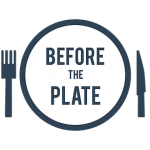In the city, the social dynamic around GMOs is almost as much of a concern to the consumer as the safety around them. I get asked about farmers being forced to buy GMOs more often than I get asked about what they actually are and the safety behind them.
The ownership of technology in the seed business is very complex and the headline “Seed company owns patent on corn” can be very misleading and scary for consumers. I often get asked, “Do you think it’s bad that a company can have a patent on our food?” My answer is no, because that is not exactly what is happening.
From explaining this issue enough times I have come up with a few analogies that help people understand the seed situation a little bit better before they start jumping to conclusions. The first way I explain a GMO is like an option on a car and the car as the seed. Farmers have lots of different car types and manufactures to choose from, and when they do make their choice they then have the option to add value to their purchase (seed) with optional extras. This is where the patent bit comes in. The GMO part of a plant is the optional extra that farmers get to choose from. If the farmer wants to buy the base model with no extras (GMOs) then they can do that very easily. The companies can’t patent the crop itself but rather an “optional extra” that they have invented themselves such as the ability to be resistant to certain types of insects and tolerant to some pesticides. This is what the company has spent many millions of dollars and several years developing, and they need to cover their investment.
The next piece of the puzzle is explaining why farmers are not allowed to collect the seeds from the plant and reuse them the following year. I explain this part as “buying” an iTunes song. Once you have paid the $1.29 you can listen to it as many times as you like, take it with you, and enjoy it anywhere you go. With that being said you are not allowed to copy and distribute that song to other people. The reason for this is you have not actually bought the song itself but rather the right to listen to that song whenever you like. If you do copy and distribute the song you can get in a lot of trouble. The same goes for seeds that a farmer has purchased that have a GMO trait in them. They have chosen not to purchase the seed itself but rather licence the right to the use of that genetic trait for one year for their benefit.
So if this is the case, why has everyone not reacted to Apple about music the same way they have to large ag companies about seeds? The answer boils down to exposure. Most people will never touch a seed or need to plant one in their life, whereas most of us have bought music from iTunes, and we know the rules of the game.
This is where “Before the Plate” is trying to expose people to food and farming and approach these rather tough issues with less of an agenda about why people should be comfortable with GMOs but rather with a story. We believe this will bring them one step closer to making better informed decisions for themselves without falling into many of the traps set out by marketers to try and gain a piece of the market.
Why do farmers plant GMO’s? from Before The Plate on Vimeo.
To connect with “Before the Plate’s” journey, follow them on Facebook and on Instagram and stay tuned to AGDAILY.com. Click here to donate to “Before the Plate.”



